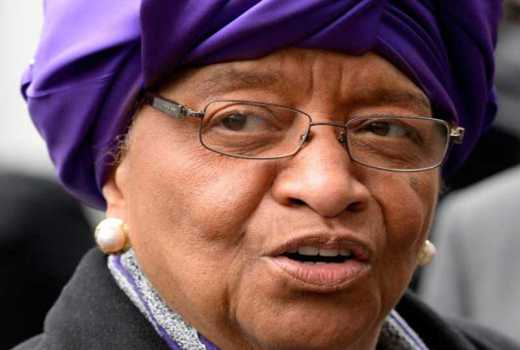×
The Standard e-Paper
Smart Minds Choose Us

Ellen Johnson Sirleaf, who shared the 2011 Nobel Peace Prize as a champion of women's rights, is stepping down after making history as Africa's first elected female president in Liberia.
Taking the reins of a nation that had just emerged from a civil war leaving an estimated 250,000 dead, Sirleaf will be remembered for maintaining peace and attracting massive donor funding as she rebuilt her country from scratch over 12 years in power.